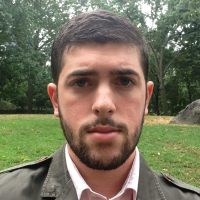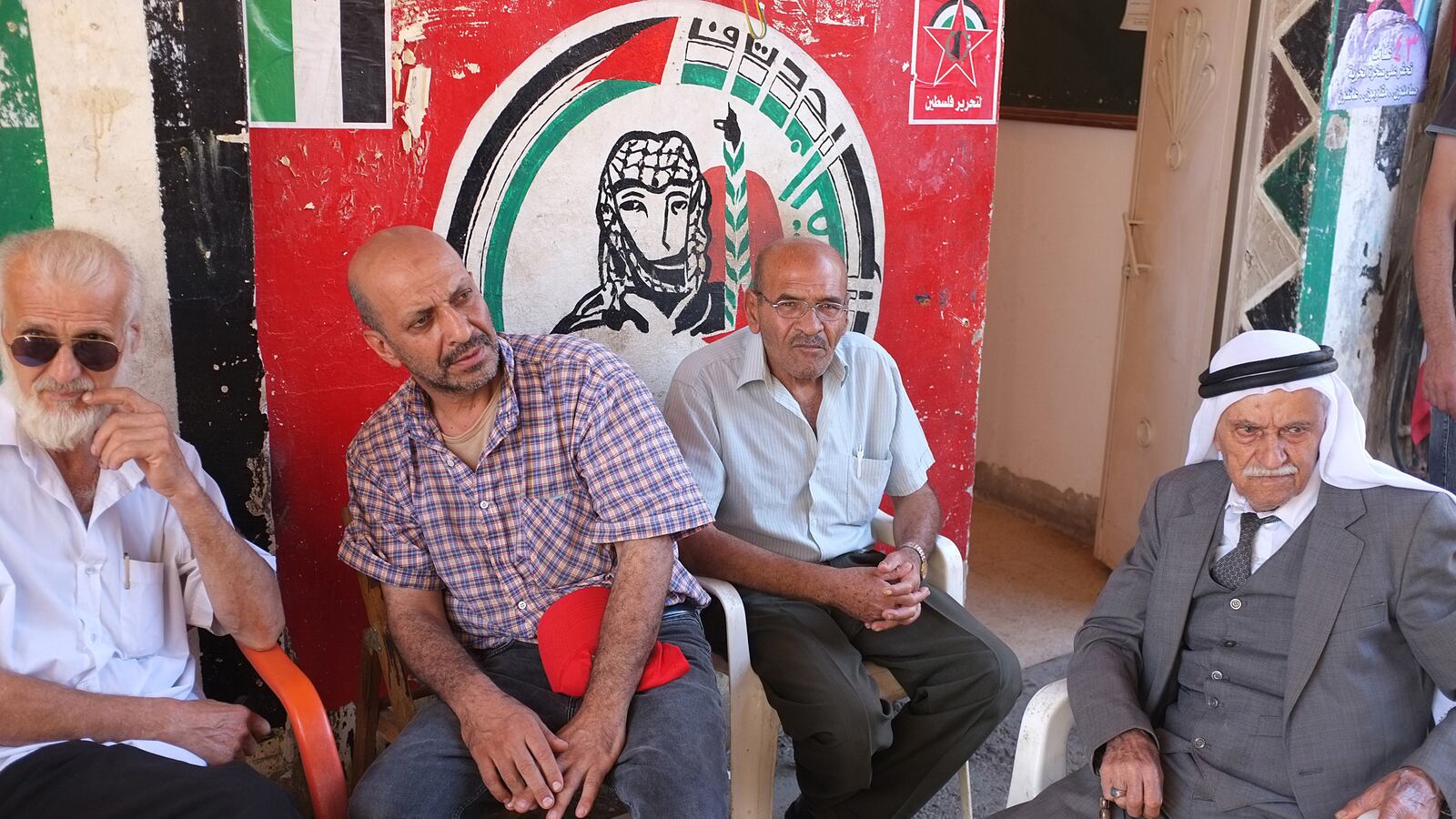Lebanon is home to just over 400,000 Palestinian refugees, the vast majority of whom have never seen Palestine. They are the children, grandchildren and great-grandchildren of those who fled their homes in 1948 in what is known in Arabic as the Nakba—the “catastrophe.”
Lebanon's Palestinians are banned from 72 professions and largely denied citizenship. They cannot own property and are without representation and many basic human rights. They are systematically discriminated against and have, on several occasions, been the victims of brutal violence. In September 1982, the Palestinians of Sabra and Shatila were massacred en masse by the Lebanese Phalange, who slaughtered hundreds—and probably thousands—in plain view of their Israeli allies. The IDF, which had surrounded the camp and set up checkpoints for entry and exit, did nothing to stop the slaughter and, in fact, prevented many of Shatila's inhabitants from fleeing.

With few opportunities for education and mobility in Lebanon, Palestinians are largely confined to more than twelve cramped and squalid refugee camps, of which Shatila is now the most infamous. I recently taught for a month in Rashidieh, which, at a distance of 10 miles, is the camp closest to the Israeli border.
In Rashidieh, as indeed in every camp, the memory of the Nakba is still fresh. It is impossible to overstate the centrality and influence that the idea of a return to Palestine has in the lives of the refugees. If you ask a Palestinian child where she is from, she will offer you not the name of the camp where she grew up, but rather the name of the village from which her grandparents or great-grandparents fled in 1948. Artwork and photographs depicting Palestine and Jerusalem are everywhere to be found, as are murals honoring resistance figures like Yasser Arafat and Leila Khaled. There are also the ubiquitous insignia of the Palestinian resistance movements; in Rashidieh, the flag of the Popular Front for the Liberation of Palestine (PFLP) is most common.
As the most recent round of negotiations continues, the plight of Palestinian refugees in Lebanon and elsewhere promises once again to be neglected and ignored. Past mediations have treated the refugees—both Lebanon's nearly half million and the wider diaspora numbering more than 4 million—as a nonissue to be disregarded until such time as it resolves itself or simply evaporates. Neither scenario, of course, is likely to occur. A Palestinian Right of Return to match the Jewish one is a concession of the Palestinian negotiators desire, and one that Israeli and American negotiators have refused to consider.
The West's preferred partner is Mahmoud Abbas, who became President of the Palestinian National Authority in 2005, after an election boycotted by Hamas. Abu Mazen, as Abbas is known, is viewed by many Palestinian refugees as both a shameless collaborator and a corrupt kleptocrat. Last year, he told an Israeli television station that he had a right to see his hometown of Safed, in northern Israel, but not to live there. This pronouncement earned him widespread condemnation, damaging his credibility amongst refugees who already viewed him less as an agent of the Palestinian cause than as a client of Israeli and American power.
The answer to the Israeli-Palestinian dilemma proffered by an ever-expanding status quo of academics and diplomats is that of the two-state solution. This specter of a settlement, asymptotically approached now for more than 20 years, would likely ask Palestinian refugees, whatever their origin, to make a home in a Palestinian state formed of the modern-day West Bank, on just 22 percent of mandatory Palestine.
To the inhabitants of Rashidieh, many of whose families originate outside of that small segment of land, this is a painful prospect. The principal of the school where I taught in the camp was puzzled when I brought up the possibility of moving to a hypothetical Palestinian state in the West Bank. “My father told me we have a house in Nahf,” he said, referring to a town in the Upper Galilee, west of the Green Line. “I want to return to my house.”
To Palestinians marginalized in Lebanon and denied return to their homeland, a peace process perennially dominated by Israeli and American interests offers little hope. The international community has long since accepted its moral obligation to refugees: the Universal Declaration of Human Rights recognizes the right of a refugee to return to his country, and UN Resolutions 194, 242 and 3236 deal with the Palestinians more specifically. A theoretical moral responsibility is thus enshrined in law, but it is important to remember that Lebanon's Palestinian's are not themselves theoretical. Their predicament is a practical concern as well as a moral one. Palestinian refugees are real—they cannot be ignored, and they will not go away.






